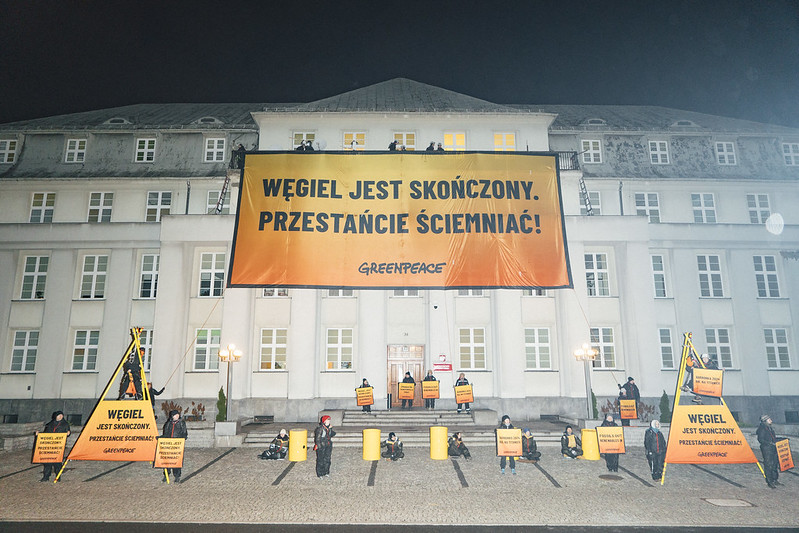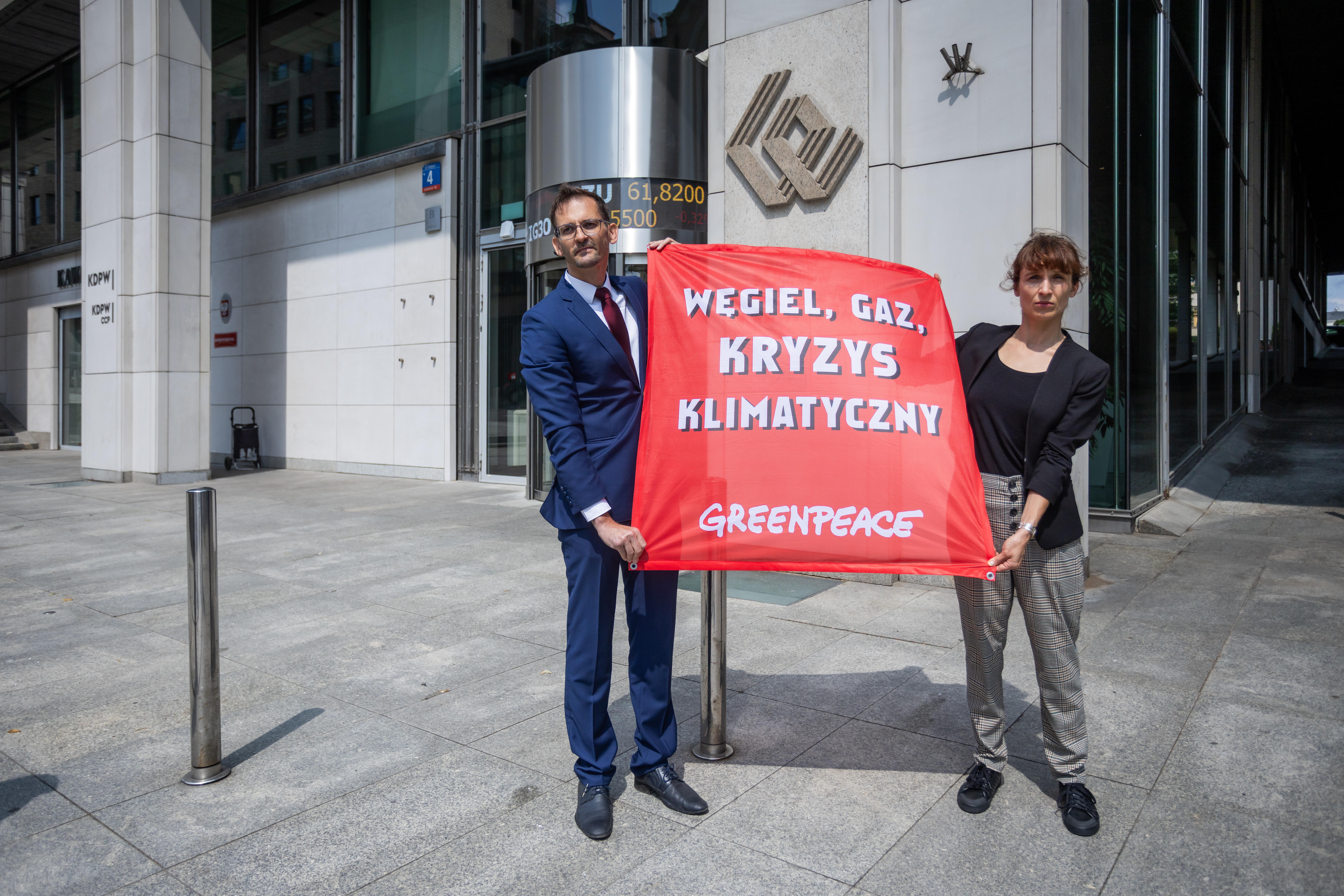
On Wednesday 4 December, a group of Greenpeace activists unfurled a large banner on the building of the Ministry of Industry in Katowice with the inscription ‘Coal is finished, stop deceiving!’. The protesters are demanding that Donald Tusk’s government make the timeline for mine closures more realistic and ensure a fair transition for the mining industry. In their view, billions of zlotys in subsidies to mining companies should be redirected to re-branding miners, investing in renewable energy sources and insulating homes. Protest takes place on Barbórka – traditional miners celebration day.
- Greenpeace demands that politicians will be fair to miners and calls for an updated timeline for mine closures, taking into account up-to-date analysis showing that coal-fired power stations will be shut down by 2035.
- The environmental NGO calls for redirection of billions of zlotys that subsidizes mining companies. The fund should be used to create new job opportunities to the miners and invested in renewable energy sources as well as energy efficiency
- Unemployment in the Silesian Voivodeship is at a record low, standing at 3.6% in October. Coal mining employs just under 75,000 people. Unlocking onshore wind development could create 50,000 to 100,000 jobs in Poland by 2030.

— Polish energy policy is based on the lie that coal has a future. The biggest present Prime Minister Donald Tusk can give to miners for St. Barbara’s Day is to become honest. The truth is that all coal-fired power stations in Poland will most likely close in the next 10 years. The power industry is already buying less and less coal and the mines are operating only thanks to multi-billion euros subsidies from our pockets. The government needs to make the dates of mine closures more realistic and at the same time help miners change industries, says Marek Józefiak, spokesman and environmental policy expert at Greenpeace Poland.
This and following year, the government will spend nearly PLN 18 billion (EUR 4,5 bln) on state aid for mines. The total cost of implementing the so-called social agreement on mining is estimated at PLN 137 billion (EUR 34 bln).

— Donald Tusk is continuing the energy policy of the former conservative government, although he himself has repeatedly criticized it. The Prime Minister is powdering the problem instead of solving it. The problem of unprofitable mining will not go away on its own, and the government must get to work. We need a realistic energy policy that, on one hand, will help the miners find new job and, on the other, will provide all Poles with cheap and clean electricity. If the government does not unlock onshore wind and build other renewable energy sources, gas, an expensive and imported fuel, will take the place of coal. This would be a fatal scenario for Poland’s energy security — emphasizes Anna Meres, climate campaign coordinator at Greenpeace Poland.
According to the Polish Industrial Development Agency (ARP), only in the first three quarters of 2024, the Polish hard coal mining industry made a loss of PLN 9.2 billion (EUR 2.1 billion). As it is stated in the so-called social agreement on mining signed in 2021, the last Polish hard coal mines are to operate until 2049. However, the share of hard coal in power generation is rapidly declining, and due to the high prices of Polish coal its export is practically impossible. A report published by Polish Energy Group (PGE) Poland’s largest energy company, shows that in the first three quarters of this year, PGE’s production of electricity from hard coal fell by as much as 18% compared to the same period in 2023. The report ‘The Last Decade of Coal’ by Greenpeace Poland, on the other hand, shows that already with the current policy, most of Poland’s coal-fired power plants will be closed before 2030, with the last coal-fired power plants closing by 2035. A similar scenario for the closure of coal-fired power plants was presented by PSE — the only transmission system operator in Poland.




